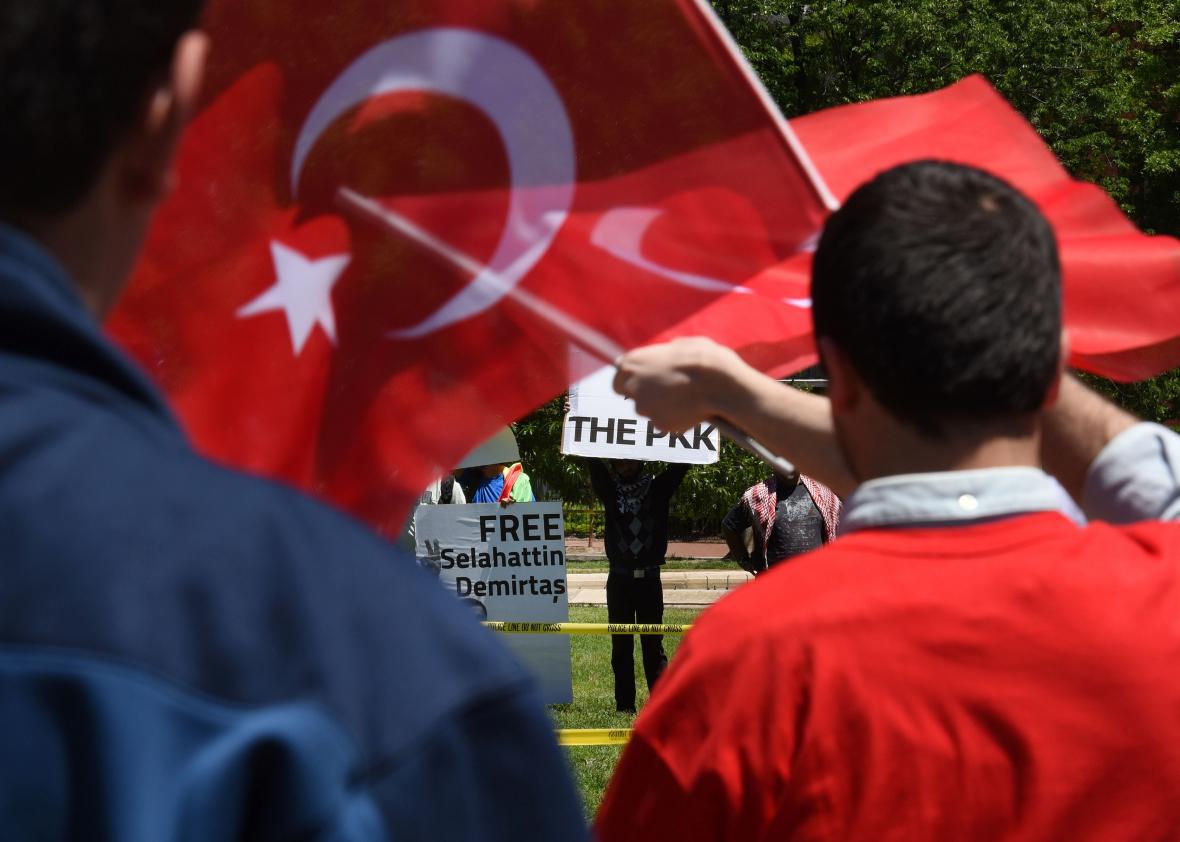Turkey’s increasingly repressive political climate spilled into the streets of Washington on Tuesday as people who appear to be President Recep Tayyip Erdogan’s bodyguards beat pro-Kurdish protesters on Embassy Row. Two people were arrested in the scuffle, which also involved D.C. police officers.
Nine people were injured in the clash outside the Turkish ambassador’s residence on Sheridan Circle, captured on video below by Voice of America:
The Washington Post reports that “it appeared that fighting broke out between a group of men who were standing in front of the ambassador’s residence and a group of men and women who stood across the street.” The Guardian reports that the men in front of the residence, who were wearing dark suits, were members of Erdogan’s security detail, but this has not been confirmed by D.C. police. Politico notes that Erdogan’s security guards also reportedly attacked protesters outside the Brookings Institution in Washington in 2016. They’ve been accused of beating protesters in other countries as well.
Some of the protesters in Tuesday’s incident were carrying the flag of the Syrian Kurdish PYD party, a U.S.-backed group considered a terrorist organization by the Turkish government. Others carried signs in support of Selahattin Demirtas, a prominent Turkish Kurdish politician who’s been in jail since last November.
Erdogan visited the White House on Tuesday where he pressed President Trump on U.S. support for the Syrian Kurds in the fight against ISIS, saying in his public remarks before their meeting that: “It is absolutely unacceptable to take the YPG-PYD into consideration as partners in the region.” The Turkish government considers the PYD and its armed wing, the YPG, to be affiliated with the Turkish Kurdish militants who have been fighting the government to establish an independent Kurdish state.
Turkey’s political disputes don’t always stay within the country’s borders. In March, Dutch riot police clashed with pro-Erdogan protesters after the Dutch government barred two Turkish ministers from campaigning among expats in support of a controversial referendum giving Erdogan more powers (which passed). German authorities are also investigating reports that the Turkish intelligence service has been spying in that country on alleged supporters of Fethullah Gulen, the exiled cleric accused by the Turkish government of orchestrating last summer’s failed coup attempt.
While the beatings that occurred Tuesday are unusual on the streets of D.C., this is pretty mild compared with what Erdogan’s opponents in Turkey are facing.
Update, May 17: The U.S. State Department has released a statement expressing concern about the incident and confirming that Erdogan’s security personnel were involved:
